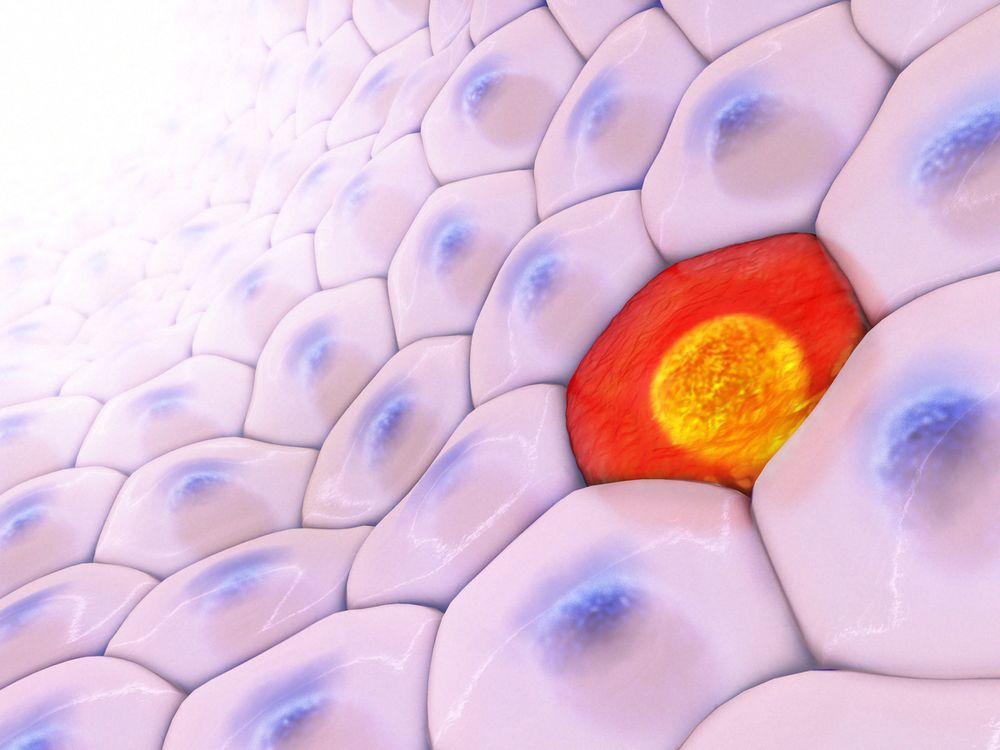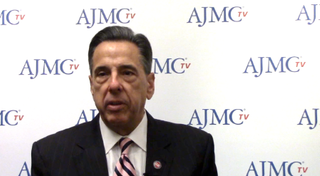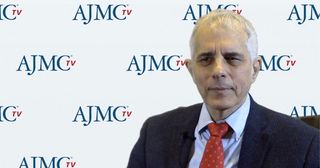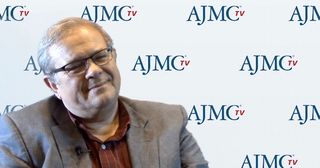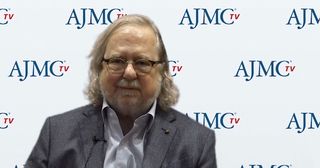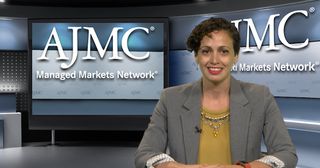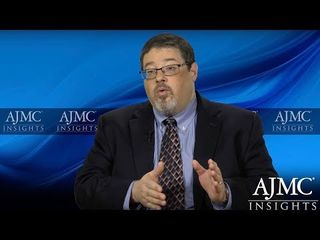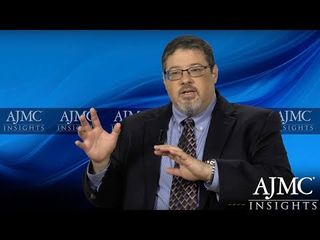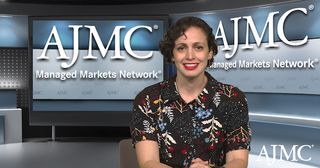
Immuno-Oncology
Latest News


What We’re Reading: Biomarker Testing in Kentucky; Opioid Guidelines Updated; EPA Limits in Drinking Water

Lenvatinib Plus Pembrolizumab Shows Durable Efficacy Benefits vs Sunitinib in Renal Cell Carcinoma
Latest Videos

CME Content
More News
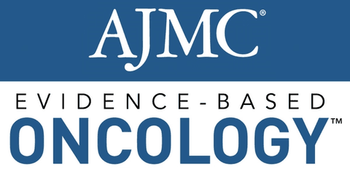

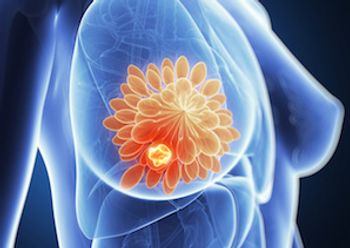
Results from a phase 2 study suggests that the oncolytic virus talimogene laherparepvec has potential to improve therapy responses for patients undergoing neoadjuvant chemotherapy for triple-negative breast cancer (TNBC).

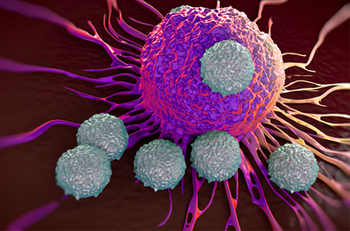
Despite coming at a high cost, an analysis found that in some cases, chimeric antigen receptor T-cell therapy may be cost-effective compared with the standard of care in the second line or later for relapsed or refractory diffuse large B-cell lymphoma (R/R DLBCL).

Long-term results show sustained benefit from the immunotherapy-TKI combination for patients with metastatic renal cell carcinoma regardless of risk profile or PD-L1 status.

Chimeric antigen receptor T-cell therapy brexucabtagene autoleucel showed a rate of complete remission of 71% and a rate of complete remission with incomplete hematologic recovery of 56%, according to 3-year follow-up results.

The investigational therapy promises a new way to target HER2 while still using chemotherapy combinations.
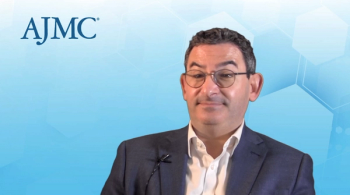
Jeremy Abramson, MD, director of the Jon and Jo Ann Hagler Center for Lymphoma at the Massachusetts General Hospital Cancer Center, shared his take on the potential benefits of chimeric antigen receptor (CAR) T-cell therapy in earlier lines of treatment.

The study suggests there is measurable amount of microbiome within the soft tissue sarcoma tumor environment, which was previously thought to be sterile.

A study published in Nature Medicine found that certain tumor mutations are more persistent and may predict immunotherapy responses more reliably than overall tumor mutational burden.
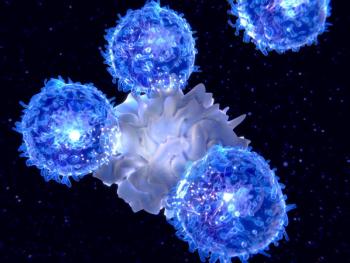
A Q-TWiST analysis of ZUMA-7 trial data suggests that axicabtagene ciloleucel (axi-cel) in the second line is beneficial to quality-adjusted survival and is a viable option for patients with relapsed or refractory large B-cell lymphoma after first-line chemoimmunotherapy.
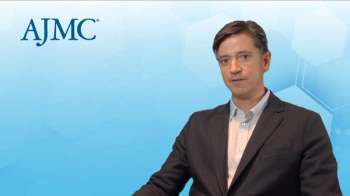
New immunotherapies are changing the shape of oncology care, but there is also a need for a system that provides these high-quality therapies to the patients most likely to benefit from them. This might mean doing an assessment and a deeper dive into patient functional status, says Alonso V. Pacheco, MD, medical director and medical oncologist/hematologist, Rocky Mountain Cancer Centers.

At the 2022 annual meeting of the American Society of Hematology (ASH), customized cancer immunotherapy treatments now share the limelight with bispecific antibodies, which made news across disease states from large B-cell lymphoma to follicular lymphoma to multiple myeloma; as their name suggests, these treatments aim at 2 targets, increasing their potency against cancer.

The findings include the identification of a 12-gene signature that could be used to categorize patients as high or low risk.
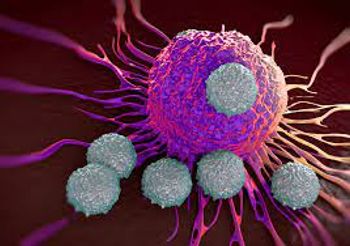
During 2022, the FDA approved 2 chimeric antigen receptor (CAR) T-cell therapies for use in second-line treatment, offering new treatment choices but raising the question: What options remain once a patient relapses after CAR T?
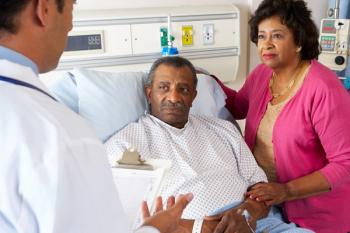
Access to and outcomes of chimeric antigen receptor (CAR) T-cell therapies may differ by characteristics such as race, ethnicity, gender, and geographic location among patients with cancer.
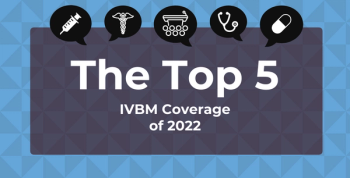
Across several Institute for Value-Based Medicine® (IVBM) events held in 2022, the most-viewed content from these events cover a variety of topics in oncology care.
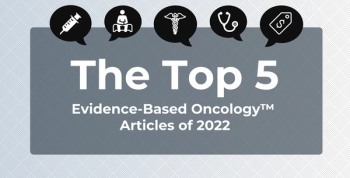
In 2022, the most-read articles published in Evidence-Based Oncology™ included the latest updates in cancer treatments, the promises and challenges of technology, and a look at the shifting landscape of care delivery.
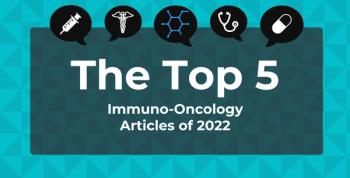
In 2022, the most-read news about immuno-oncology included an FDA approval for liver cancer, research findings on other potential therapies for liver cancer, a Q&A with a COTA Healthcare executive about how real-world evidence has changed, new possibilities for patients with solid tumors, and more.


Among the conference highlights from the annual meeting of the Academy of Managed Care Pharmacy (AMCP) were an interview on chimeric antigen receptor T-cell therapies and a session on best practices for value-based contracting.
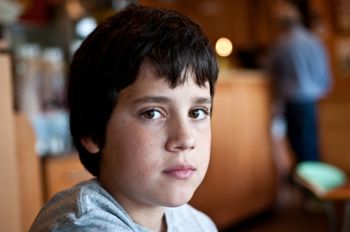
This paper follows the 10-year remission mark for the first child treated with CD19-targeted CAR (chimeric antigen receptor) T-cell therapy for B-cell acute lymphoblastic leukemia (B-ALL), adding promise to the notion that the technology can provide long-term durable remissions in patients who are highly refractory to chemotherapy.
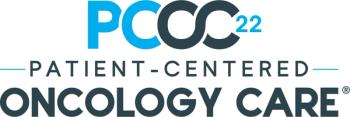
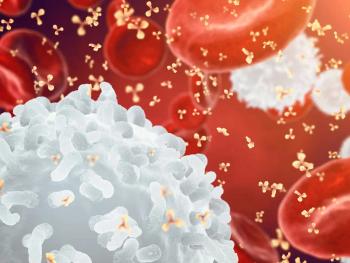
Investigators from Fred Hutchison Cancer Research Center hoped to gain insights into what factors can predict success with axi-cel in patients with relapsed or refractory diffuse large B-cell lymphoma (DLBCL).

